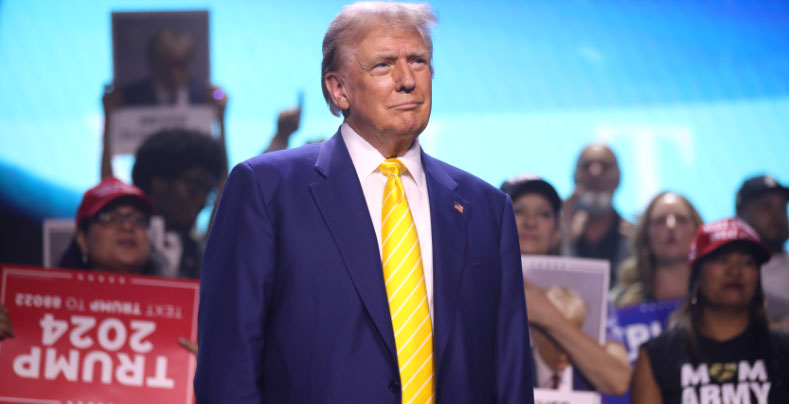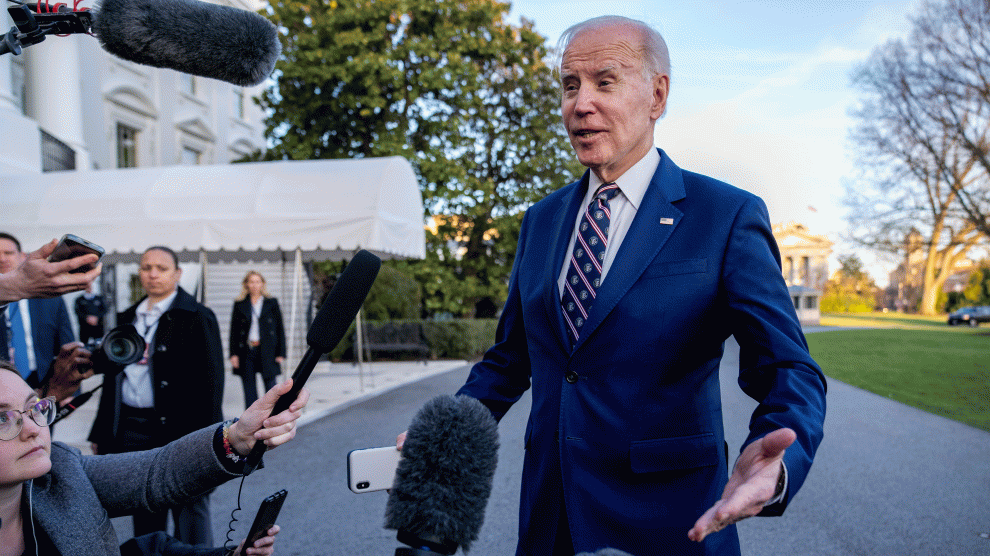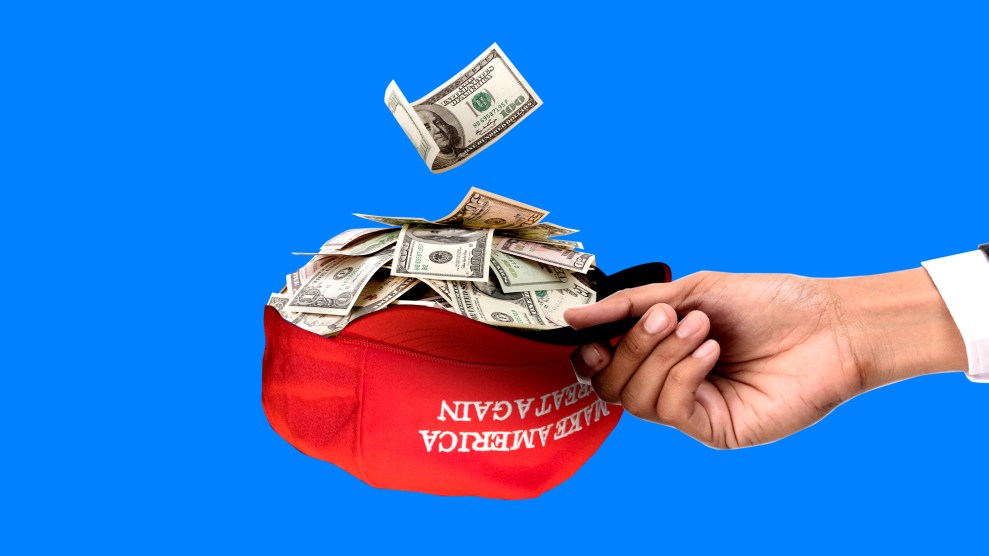
Trump basks in the love of his supporters at a rally in Phoenix on June 6.Gage Skidmore/ZUMA Press Wire
Donald Trump may have lost in the Manhattan court where a jury recently convicted him of 34 felonies, but there’s one place he and his party appear to be winning: in the race to snag major cash from the richest families in America.
For all of Trump’s supposed grassroots appeal, as of May 1, less than one-third of contributions to his campaign committee for the 2024 election cycle had come from grassroots donors—people giving less than $200. (Campaign finance disclosures tend to lag a month or two behind.)
According to OpenSecrets, large contributors accounted for 69 percent of Trump’s $121 million total. President Joe Biden’s campaign committee, which took in $195 million, got 54 percent from large donors.
More broadly, the lion’s share of confirmed contributions from the biggest political givers—the top 100 families—have flowed to Republican candidates and groups.
In the “hard money” category—direct donations to candidates, which federal law caps at modest sums—Republicans took in 27 percent more from the Top 100 families than Democrats did ($85.9 million vs. $67.9 million).
But looking at all federal contributions, including “soft money,” a category that tallies the generous donations allowed to party committees and the unrestricted contributions to SuperPACs, Republicans raked in a whopping $508 million from the Top 100—triple the Democrats’ $169 million take.
And this was all before Trump got convicted.
As a journalist who writes about wealth and tax policy, my take is that Biden and the Dems have spooked America’s richest with their multiple (and largely unsuccessful) efforts to close abusive loopholes and raise taxes on corporations and the upper-crust. That includes efforts to tax the unrealized gains of the megarich—the paper profits on appreciated investments that are currently only taxed when the assets are sold.
In the meantime, Trump and the Republicans are fighting to extend their unpopular (and ultimately disappointing) 2017 tax cuts—a move the Congressional Budget Office calculates will cost the US government $3.5 trillion over 10 years.
Trump has vowed to go further: “We’re gonna give you tax cuts,” he told a gathering of “rich as hell” prospective donors at a December Mar-a-Lago fundraiser. Since then, he has been openly transactional in his efforts to raise cash, warning rich donors that supporting Biden will cost them, whereas the policies of a second Trump administration would further enrich them, along with corporate shareholders. (He has also solicited oil and gas executives for generous contributions, promising his administration would pursue policies in their favor.)
A river of cash has poured into Trump’s coffers since his conviction—the campaign claims it received $53 million in the first 24 hours. Which is kind of surreal, but I suppose it adds up. After all, when Trump holds a post-conviction press conference that starts with him saying, “This is a case where, if they can do this to me, they can do this to anyone,” at least some of those rich-as-hell donors no doubt imagine he’s talking directly to them.













